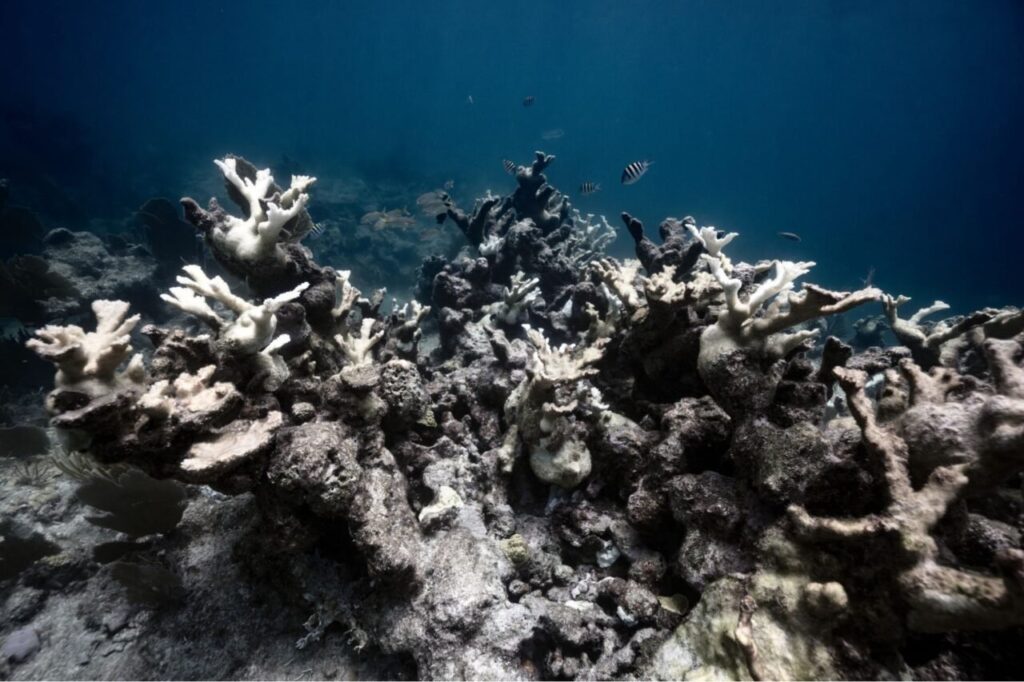
UPDATE: A shocking new report confirms that the world’s warm-water coral reefs have crossed a critical thermal tipping point, marking them as the first ecosystem to reach this alarming threshold. Released today, the 2025 Global Tipping Points Report by the University of Exeter and international partners highlights the urgent state of coral reefs as global ministers convene in Brazil for the upcoming UN Climate Change Conference in November.
Marine biologist Melanie McField, director of the Healthy Reefs for Healthy People initiative, emphasizes the gravity of this finding. “We’re in the zone where death—the tipping of the whole ecosystem—is underway,” she stated. The report indicates that 84.4% of the world’s coral reefs have experienced bleaching-level heat stress since January 2023, affecting at least 83 countries and marking the largest coral bleaching event on record.
This urgent update comes as the planet grapples with the impacts of climate change. The report warns that ocean temperatures have already risen by 2.7°F (1.5°C) above pre-industrial levels, surpassing the critical threshold of 2.16°F (1.2°C) that many coral species can endure. Experts predict that if global temperatures continue to rise without significant intervention, coral reefs could face catastrophic declines within the next decade.
The ongoing threat of ocean warming is forcing corals to expel the vital symbiotic algae, known as zooxanthellae, leading to widespread coral bleaching. “We are in the midst of our fourth global coral bleaching event,” says NOAA. With rising ocean temperatures causing increased frequency and severity of these events, the survival odds for coral reefs continue to diminish.
While some corals can recover if conditions improve, the report warns that the current rate of temperature increase leaves little room for recovery. “Climate change is accelerating the severity of bleaching events while decreasing recovery time between them,” noted Mark Hixon, a leading coral reef expert from the University of Hawaii. “We’ll be seeing more frequent and more severe bleaching events.”
The implications are dire. If global temperatures rise beyond 2.7°F (1.5°C), researchers predict that warm-water coral reefs are “virtually certain” to tip over into irreversible decline. This scenario highlights the critical need for immediate action to curb emissions and restore coral ecosystems.
In light of these findings, scientists are exploring various strategies to protect and restore coral reefs. Some initiatives focus on enhancing coral resilience through genetic modification, while others aim to address pollution and harmful fishing practices. “We need to have stubborn people at the table in these negotiations who say, ‘We want to keep coral reefs on the planet,’” McField urges.
The report calls for stringent emission reductions and enhanced carbon removal to bring global average temperatures back down to a safe level. “These temperatures are essential for retaining functional warm-water coral reefs at a meaningful scale,” the authors state.
As the world watches the discussions unfold in Brazil, the urgency of the situation cannot be overstated. Coral reefs, crucial for marine biodiversity and coastal protection, are now at the forefront of the climate crisis. With their future hanging in the balance, the global community must act decisively to save these precious ecosystems from impending collapse.
The time for action is NOW.







